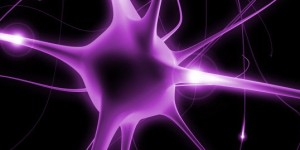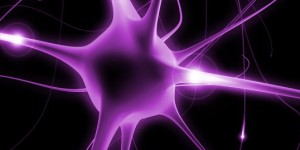 Part one of this “Ayurvedic Sleep Report” looks at the vital role sleep plays on our health. Now before moving on, I would like to share a bit on the science of sleep. In this article I will guide you through the specifics on the two main biological mechanisms that govern our ability to sleep and then give you an understanding about a few major hormones that get disrupted during a sleep disorder.
Part one of this “Ayurvedic Sleep Report” looks at the vital role sleep plays on our health. Now before moving on, I would like to share a bit on the science of sleep. In this article I will guide you through the specifics on the two main biological mechanisms that govern our ability to sleep and then give you an understanding about a few major hormones that get disrupted during a sleep disorder.
Biological Mechanisms of Sleep
1. Circadian Rhythm:
The Circadian Rhythm is thought of as our “internal clock” that is located in the hypothalamus region of the brain. This is the main mechanism that controls our sleep cycle and is driven by the external environment, particularly the rhythm of the day/night cycle, as it is guided by the light. Unlike sleep-wake homeostasis, this biological clock acts independently from the amount of sleep previously obtained or the amount of time one has been awake. This is the reason that one may get 8 or more hours of sleep, but may still feel unrested if the sleep cycle did not match the normal 24 hour circadian rhythm. For example, one could sleep from 1am until 10am, but since this is considered a “delayed circadian rhythm”, then one is likely to feel groggy and fatigued, especially if this is a reoccurring sleep cycle for the individual.
2. Sleep-Wake Homeostasis:
Our sleep-wake homeostasis is the other sleep mechanism of the body and is controlled by a “pressure factor” in the brain. Unlike the Circadian Rhythm, this device is set off by the amount of time one has been awake or has been asleep. While one is awake, a neuromodulator called Adenosine begins to build up in the cerebral spinal fluid. As the pressure builds up and Adenosine levels increase, one begins to feel more and more drowsy. It is only when one is in a deep state of sleep (phase 3) that the Adenosine begins to rapidly release. The removed adenosine is then replaced with glycogen, our main form of energy storage, during a proper sleep cycle. If one is continuously experiencing sleep interruptions and does not reach deep sleep, the Adenosine is not properly removed and replaced, leading one to feel drowsy upon awakening.
Sleep and Hormonal Balance
Chronic sleep issues have a detrimental effect on pretty much all we do, and this is partially due to the negative impact it has on our internal hormone regulation. Since our hormones have a Circadian Rhythm which is strongly governed by our sleep cycle Circadian Rhythm, it only makes sense that when one is off balance the other will follow. Here are a few of the most documented hormones that become adversely affected after periods of sleep deprivation or sleep extension.
1. Cortisol:
Cortisol, one of our major stress hormones, has been linked to obesity and metabolic disorders when found in raised levels. Studies have shown that sleep deprivation is directly correlated to increased evening levels of cortisol along with a 6 fold slower decreation of cortisol. This not only creates an energy spike in the evening, when one should be winding down; but also is one of the factors that is involved in insulin resistance (a precursor for diabetes) and mid-body weight gain (a precursor for metabolic disorders).
2. Human Growth Hormone (GH):
GH is a hormone responsible for proper growth in children and tissue reproduction/regeneration in adults. It is also responsible for keeping the blood sugar levels in line and building muscle mass. GH has been shown to be released during a normal sleep cycle and in the occurrence of sleep deprivation, GH level secretion is minimal to just about absent. Low levels of GH are related to a reduced sense of wellbeing, increased fat, increased risk of heart disease and weakened heart, muscles and bones.
3. Appetite Hormones:
There are two main appetite hormones that regulate our appetite and both of them are adversely altered upon sleep deprivation or sleep extension. Leptin, the appetite suppressing hormone, has been shown to be reduced in patients of sleep disorders while Ghrelin, the appetite stimulating hormone, is shown to increase dramatically. What is even worse, is that the body is prone to high-carb cravings to satiate this increased hunger and Ghrelin is shown to spike at its highest level in the evening. This creates the “late night munchies” which has a negative effect on the digestion, the sleep quality/quantity and increases toxin levels in the system. Pairing this with the insulin resistance that is also manifesting with sleep disorders, one is further prone to diabetes, heart disease and obesity.
Hopefully this information is giving you a clear picture of what is happening on a biological level during sleep disorders. The first two parts to this “Ayurvedic Sleep Report” have been focused on the Western medicine view point, which I feel is helpful to know even when seeking Ayurvedic treatment. But this is a report on Ayurveda and Sleep Disorders, so for the remaining sections of this article, we will switch our mindsets and see what the ancient wisdom of Ayurveda has to say about Sleep Disorders…. Stay tuned!!



Like like the tongue diagnosis
thank you